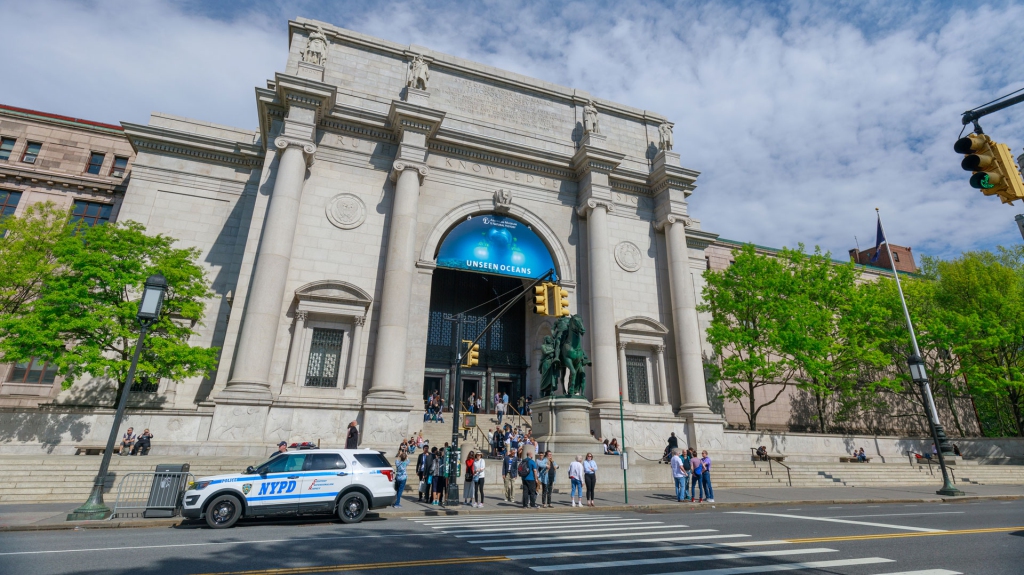
The American Museum of Natural History in New York has dedicated its 5 floors to the history of our planet. It covers everything from dinosaur fossils to distant galaxies, showcasing the world past and present. It is educational and fun and perfect for both adults and children.
Location
200 Central Park West, Upper West Side
Hours
Opening hours vary depending on the season
Daily, 10 π.μ.–5:30 μ.μ
Tickets
Adults: US$ 23
Children (3 – 12): US$ 13
Seniors (over 60): US$ 18
Free entrance with New York Pass
Free entrance with Sightseeing Pass
How will you get there?
Μετρό: γραμμές B, C – στην 81st St. Museum of Natural History Station
Λεωφορείο: Γραμμές M7, M10, M11, M79, M86 και M104
What is nearby?
Central Park (50 m)
Lincoln Center (1,4 km)
Colombus Circle (1,7 km)
The Dakota Building (482 m)
American Folk Art Museum (1,3 km)
Located in the heart of Manhattan near Central Park, the American Museum of Natural History is one of the world’s largest scientific and cultural institutions housed in an architecturally magnificent building complex. In addition to being one of the best museums in New York, the Natural History Museum is also an actual movie location.
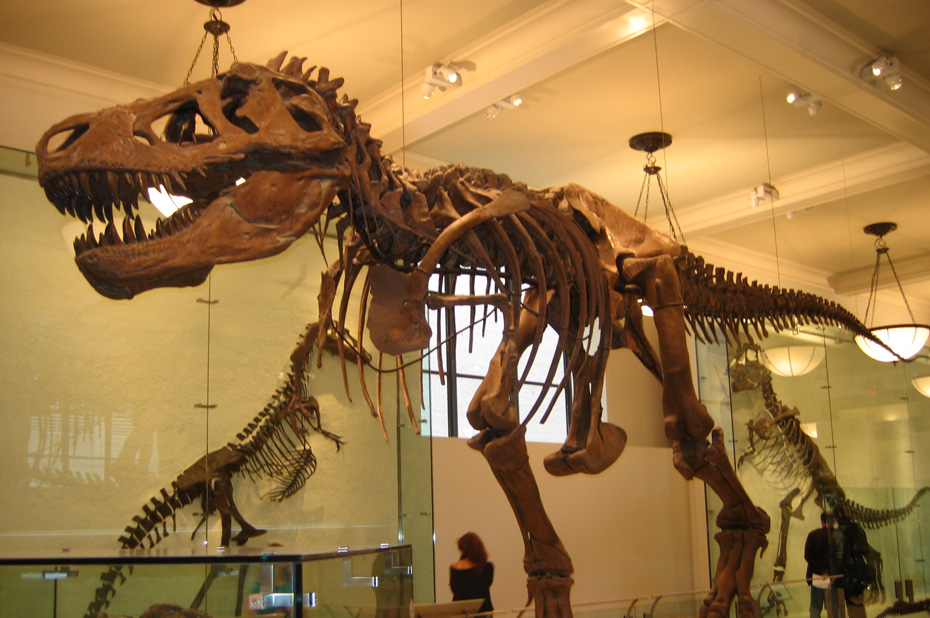
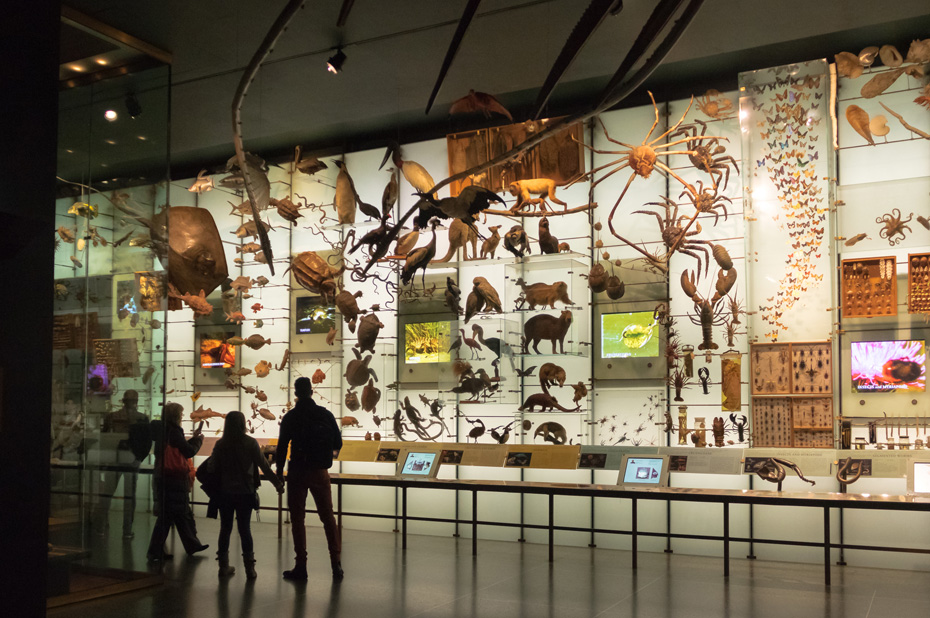
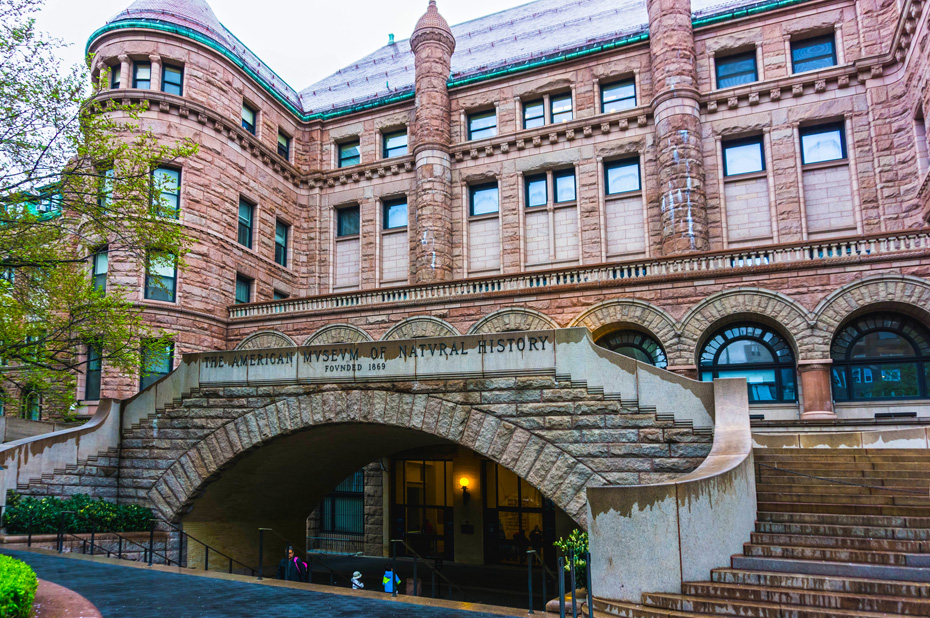
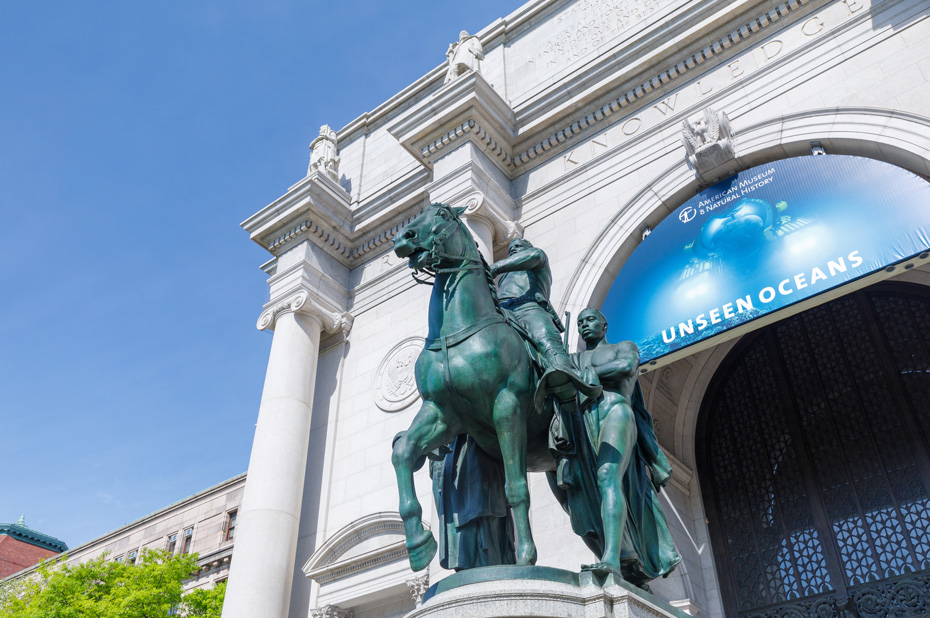
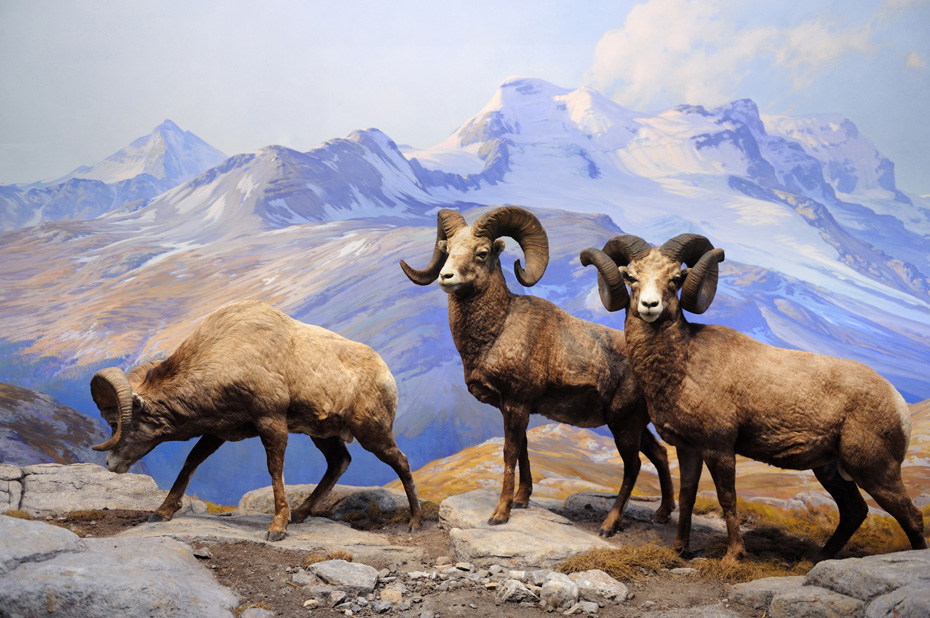
History
Founded in 1869, the American Museum of Natural History has grown significantly over the years, and now includes 25 interconnected buildings with more than 111,483 square meters of exhibits, research facilities and libraries. It’s a fascinating blend of past and future and a delight for explorers of all ages.
Where to find dinosaurs at the New York Museum of Natural History
There is one thing that the New York Museum of Natural History is famous for and that is the dinosaur exhibits. When you enter the museum you will be greeted by one of their many fossils related to the large dinosaur exhibit at the New York Museum of Natural History.
On the fourth floor, you will find a large dinosaur exhibit where countless original dinosaur fossils have been assembled to give you a feel for the magnificent prehistoric creatures. The two rooms of the Koch Dinosaur Wing hold about 100 specimens, 85% of which are fossils and not casts.
These 100 specimens are just a small fraction of the museum’s collection of dinosaur fossils, which is among the largest and most scientifically important such collections in the world. Many of these were featured in the movie “Night at the Museum,” such as the iconic Tyrannosaurus Rex skeleton on display in the Saurischian Dinosaur Hall.
The Big Bang at the Rose Center for Earth and Space
The Rose Center for Earth and Space is a large glass cube that encloses the equally impressive Big Bang Theater and the Hayden Planetarium in a huge sphere. Watch the four-minute presentation of the Big Bang, walk along the Cosmic Pathway and explore our planet from a completely different perspective.
This presentation reminds us how we are only tiny specks in a vast unknown universe. This is definitely something you don’t want to miss!
Precious collections from the past in the Hall of Minerals
The Harry Frank Guggenheim Hall of Minerals contains hundreds of impressive mineral specimens collected from around the world. They are exposed, among other things. a giant topaz crystal from Brazil, a 4.5-ton block of azurite-malachite ore from Arizona, and a jade from Poland. The Morgan Memorial Hall of Gems displays an array of precious and decorative stones – some uncut, some polished, and some in elaborate jewelry.
Organic materials such as coral and amber are also exposed in a fantastic display of natural elements and colors. Coming from the museum’s collection of more than 100,000 minerals and gems, several glass cases hold decorative objects and jewelry spanning three millennia. At 563 carats, the Star of India is the largest blue sapphire in the world. With an impressive age of 2 billion years, it is also one of the most famous gems in the world.
Live the blue whale experience at the New York Museum of Natural History
The Milstein Family Hall of Ocean Life highlights the diverse and complex ocean life as well as the beauty of our marine companions in a fully immersive marine environment. The highlight of the exhibition is the 30m fiberglass replica of a female blue whale.
Blue whales have been hunted to extinction, so today, the museum’s blue whale is a reminder of our responsibility to our environment. It’s amazing to see how big these animals really are. In case you’re wondering if the blue whale at the Natural History Museum is real. No, it’s just a model. A large and impressive model.
See a movie in the IMAX theater at the New York Museum of Natural History
The museum also has its own IMAX theater which is truly impressive thanks to its huge high-definition movie screen. The movies are shown in 2D and 3D and are always breathtaking. The Samuel J. and Ethel LeFrak Theater is an elegant performing arts theater featuring a 40-foot-high, 80-foot-wide screen and a state-of-the-art digital sound system.
Discover in Dioramas
The vast majority of the museum’s 34 million+ specimens are tucked away in collections for study by museum scientists, comparative biology students and researchers from around the world. But some do double duty, as behind-the-scenes science material and exhibiting the specimens in public galleries.
Consider dioramas, designed since the early 1900s to accurately represent a scene, to transport visitors to a busy watering hole or a quiet forest thousands of miles away. “The dioramas at the American Museum of Natural History, when they were first built, were an opportunity for people to see a world that most people couldn’t travel to,” says Evon Hekkala, a professor at Fordham University and research associate at the museum. “They are beautiful visual depictions of a place and a time in history, but they are also part of the record of our planet.”
How much time do you need to visit the New York Museum of Natural History?
The museum is huge, to cover most of it you will need a whole day, possibly more. Above we have indicated the main and best exhibitions. So you have the possibility to plan your trip. Otherwise, there are museum maps given to you upon entry to help you figure out what interests you and plan your time.
Is the New York Museum of Natural History worth visiting?
This particular museum is a great place. It is beautiful, vast and educational. The most important tip is to give it the time it deserves. If you try to run through it, you’ll likely leave feeling like you missed something. It’s huge and there’s so much to see, so set aside a day for your tour rather than trying to cram it into an afternoon. Take your time and really appreciate all that the museum has to offer as this experience may not be yours again.
Gift shop
There are many gift shops inside the museum. The museum’s central gift shop and special exhibition shops are open. The front half of the Dino Shop on the 4th floor is open from 10am. to 5:30 p.m.
